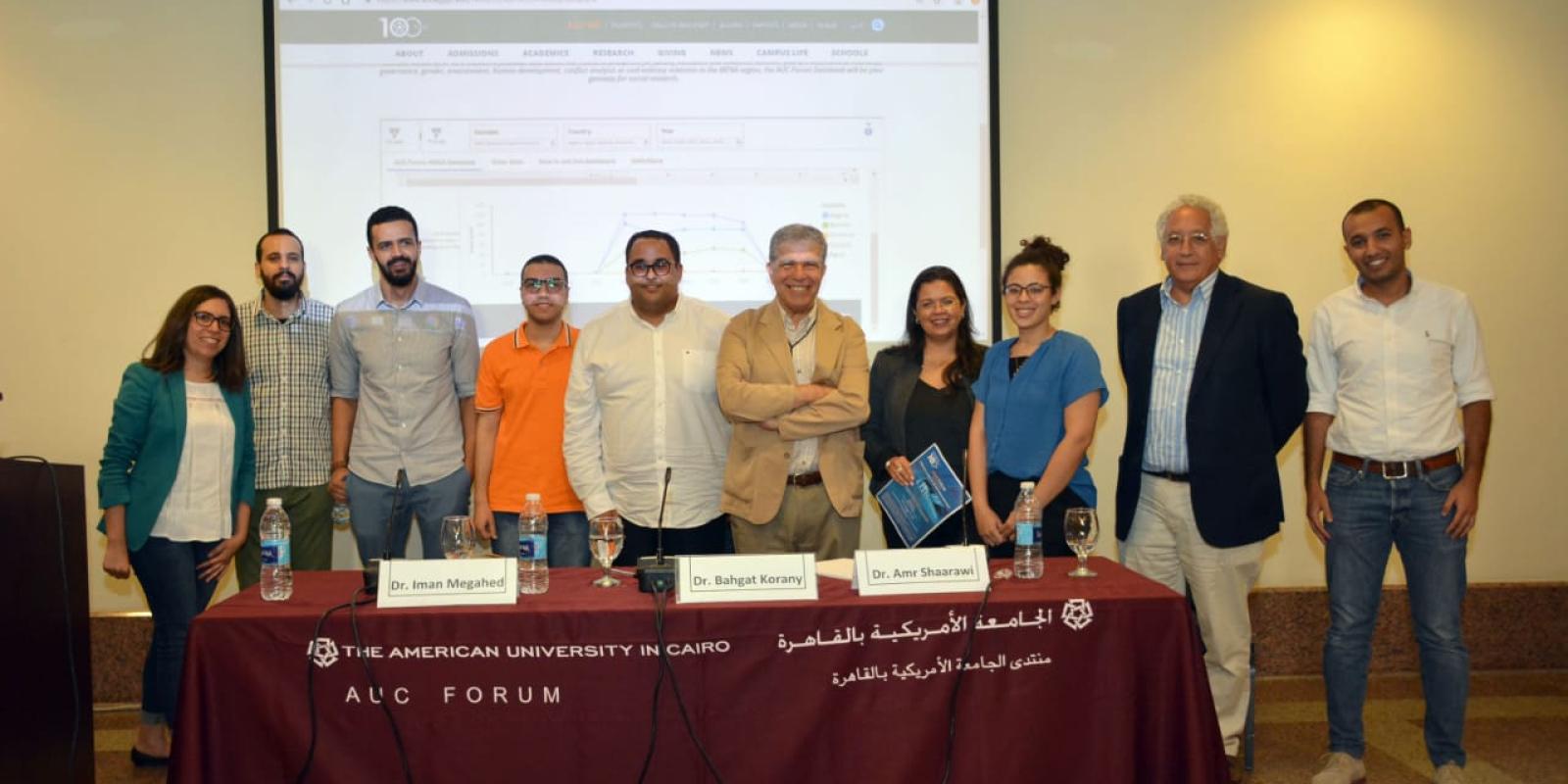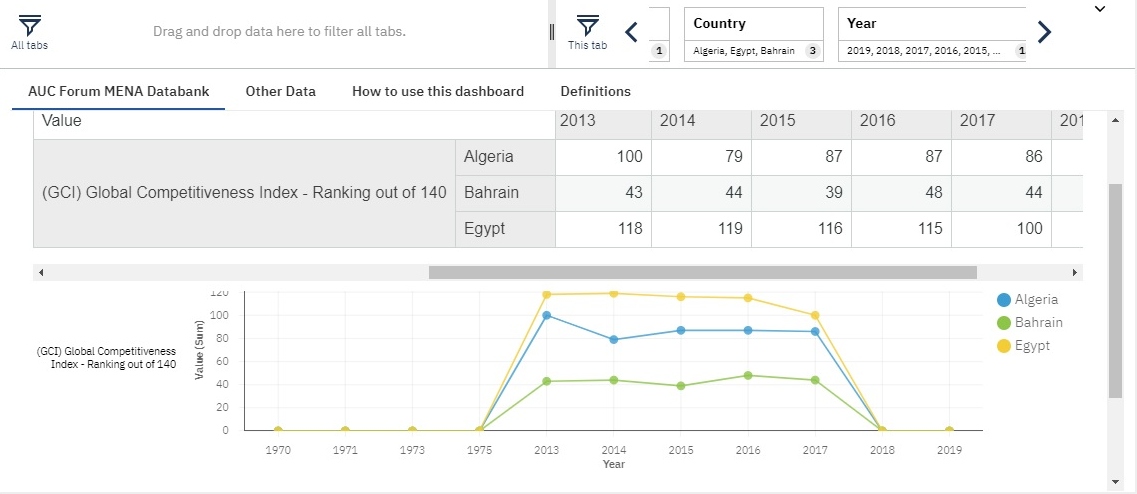
AUC Forum MENA Data Bank First to Centralize, Organize Data on Middle East
The first-of-its-kind in the region, the AUC Forum MENA Data Bank provides a unique space for researchers, scholars and students to view and interact with essential data on 25 countries in the Middle East over a 50-year span.
“This is a convenient location for students, researchers and the general public to see, analyze and interpret data,” Korany said. “Also, AUC is home to the central bank of data on the Middle East, and that is how we can be a present figure in the region.”
With over 30 indicators covering topics such as governance, human development, economics and gender, the bank incorporates data from the world’s largest and most credible international organizations, such as the World Bank. The bank includes 25 countries and 48 years of data, spanning from 1970 to 2018. Users are able to choose a combination of indicators, countries and years to be presented in tables and graphs, allowing for cross-country comparison.

The project started when Bahgat Korany, director of the AUC Forum and professor of international relations and political economy at AUC, found the urgent need to compile and centralize the profuse data gathered on the region over several years, particularly with the Middle East being at the center of news and research over the past few decades due to rapid and significant political, economic and social change.
Working with Iman Megahed, assistant vice president for digital innovation and chief strategy officer, and Amr Shaarawi, professor of physics, Bahgat was able to materialize this need into the AUC Forum MENA Data Bank.
This project comes at a time when data is becoming an increasingly essential tool in different fields of work, including journalism and social sciences.
“Data is the order of the 21st century,” Megahed said. “It is the most powerful commodity today.”
For researchers, this bank not only provides a wide variety of data in one location, but gives them the ability to reach substantive conclusions by visualizing and analyzing trends. Additionally, data-driven and backed journalism is becoming increasingly important in an age where social media platforms make way for unsubstantiated opinions to be taken for news.
“We always have people commenting on the Middle East,” Korany said. “This will give people the chance to support their claims.”
The creators of the data bank look at the project as a stepping stone even more than an achievement. For them, making AUC a center for global research is a priority.
“The more data we have and organize, the more competitive we become,” Megahed said.
They plan on updating the data bank each year and hope to expand the type of information it includes to encompass different changes in the region.
“This is just one step that can be taken to higher levels,” Shaarawi said.
